#introverted intuitive feeling judging
Explore tagged Tumblr posts
Text
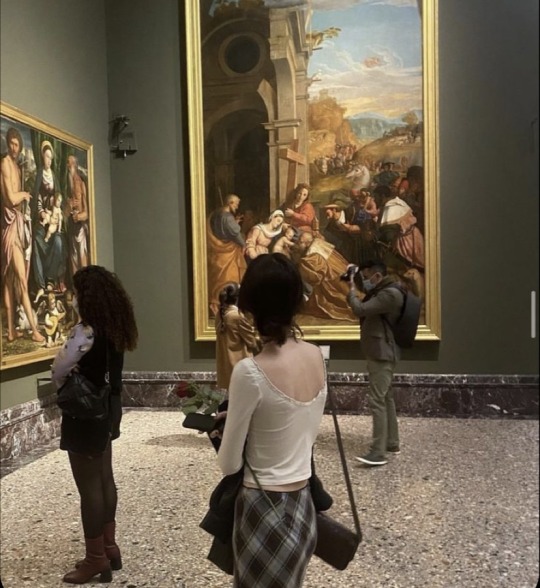







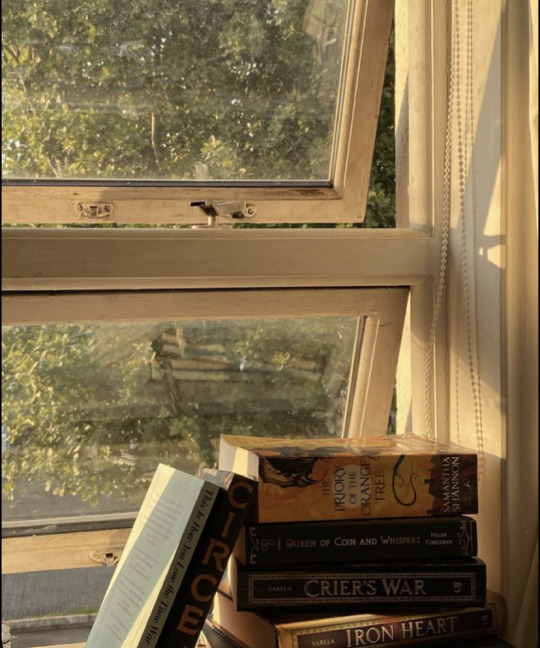
INFJ - The Advocate 🪴
#infj#infj personality#infj girl#infj mbti#mbti#moodboard#aesthetic#aesthetic moodboard#introverted#intuitive#feeling#judging#diplomats#the advocate#diplomat series#mbti series
186 notes
·
View notes
Text
Myers-Briggs® Personality Basics
I'd like to start by acknowledging the fact that the Myers-Briggs Test is a pseudoscientific theory/test, which means that it's not compatible with the scientific method and therefore, cannot be proven by science. This theory was created purely out of observation. Your 'type' is simply looked at as a way to understand and relate to others better.
I would also like to add that your Myers-Briggs 'type' is not an end-all-be-all of how to live your life. There's also no one personality that is 'better' than another; each has strengths and weaknesses. AND, if you don't think your 'type' is accurate that's okay! Personally, I think my 'type' fits me to a tee and I've found that others' Myers-Briggs types are usually pretty accurate; but that's just my opinion, if yours is different that's fine, I'm not in any way trying to convince you that you're wrong.
I find Myers-Briggs rather fascinating, and I like to use personality types as a rough guide on how to write for different celebrities (mostly K-Pop stars) and characters. But I also get really fixated on the research side of my writing and like to try and be as accurate as possible with everything from height comparisons to period-appropriate clothing (even if it's really not a big deal).
Anyhow...
The Myers-Briggs Personality Indicator was first published in 1944 by Isabel Briggs Myers and her mother, Katherine Cook Briggs (side note: I've been acquainted with this test for YEARS and only just learned that it was created by two women like...holy shit how did I not know this).
The two were inspired by Carl Jung's "Psychological Types", published (in English) in 1923, and began developing their scale during WW2 as a way for women to determine which industrial jobs would be their best fit as they entered the workforce.
Since it's first publication in the 40s, the test has undergone a number of changes but the current break-down includes four main dichotomies and one 'add-on'.
The categories are introverted/extroverted, observant/intuitive, thinking/feeling, and judging/prospective. The 'add-on' is assertive/turbulent.
In a nutshell: introverted/extroverted deals with where you gather your energy, observant/intuitive speaks to how you view the world, thinking/feeling has to do with decision-making and emotional responses, and judging/prospective looks at your approach to work and planning. The assertive/turbulent add-on looks at self-confidence.
More detailed notes below!
I/E = Introverted/Extroverted = Energy: How you interact with your surroundings
Introverted individuals prefer solitary activities and get exhausted by social interaction.
They tend to be quite sensitive to external stimulation (e.g. sound, sight, smell) in general.
Extraverted individuals prefer group activities and get energized by social interaction.
They tend to be more enthusiastic and more easily excited than Introverts.
TLDR: Introverts:Solo::Extroverts: Social
S/N = Observant/Intuitive = Mind: How you see and process the world
Observant individuals are efficient, pragmatic, and down-to-earth.
They tend to have strong habits and focus on what is currently happening or has already happened.
Intuitive individuals are very imaginative, open-minded, and curious.
They prefer novelty over stability and focus on hidden meanings and future possibilities.
TLDR: Observant:Concrete::Intuitive: Abstract
T/F = Thinking/Feeling = Nature: How you make decisions and cope with emotions
Thinking individuals focus on objectivity and rationality, prioritizing logic over emotions.
They tend to hide their feelings and see efficiency as more important than cooperation.
Feeling individuals are sensitive and emotionally expressive.
They are more empathic and less competitive than Thinking types and focus on social harmony and cooperation.
TLDR: Thinking: Head::Feeling: Heart
J/P = Judging/Prospective = Tactics: Your approach to work, planning, and decision-making
Judging individuals are decisive, thorough, and highly organized.
They value clarity, predictability, and closure, preferring structure and planning to spontaneity.
Prospecting individuals are very good at improvising and spotting opportunities.
They tend to be flexible, relaxed nonconformists who prefer keeping their options open.
TLDR: Judging: Predictable::Prospective: Spontaneous OR Judging: “Type A”:: Prospective: “Type B”
* -A/-T = Assertive/Turbulent = Identity: How confident you are in your abilities and decisions
Assertive (-A) individuals are self-assured, even-tempered, and resistant to stress.
They refuse to worry too much and do not push themselves too hard when it comes to achieving goals.
Turbulent (-T) individuals are self-conscious and sensitive to stress.
They are likely to experience a wide range of emotions and to be success-driven, perfectionistic, and eager to improve.
TLDR: Assertive: No stress:: Turbulent: Stress
You can take the MBTI here: https://www.16personalities.com/free-personality-test
It's free and even without 'premium' access you will learn tons about your personality type! If you want to learn more than what 16personalities gives you, there are oodles of resources online that can give you more insight.
#myers briggs#mbti#mbti types#introvert/extrovert#observant/intuitive#thinking/feeling#judging/prospective#assertive/turbulent#personality types#personality quiz#psychology#psych101#personality#16 personalities#16 personality types
7 notes
·
View notes
Text

✨ Myers Briggs Aesthetic Mood Board for ESTJ sparkle ✨ 📈 😤 👩⚖️
Decided to add a selfie of mine on the bottom left corner because this is my MBTI!
(All art featured in this post belongs to their original artists and I claim nothing except my own selfie. Arya Stark drawing is by @arte072 , if you see any art by other artists on here, please let me know so I can credit them)
#mood board#ESTJ#Arya stark#aph England#hermione granger#dwight schrute#the office#Harry Potter#hetalia#a song of ice and Fire#Disney#Tiana#princess and the frog#leia organa#Star Wars#judge Judy#Gordon Ramsay#Sophie hatter#ghibli#howls moving castle#choleric#thinking#extroverted#sensing introverted#intuitive extroverted#feeling introverted#judge#teacher#rebel#tomboy
5 notes
·
View notes
Text
CHG 1.2 16Personalities
This post is part of a series that was originally designed to be a course called Creating Holistic Goals. It is highly recommended that you start at the beginning and work your way through the activities in order. Table of Contents Testing Results Key Takeaways Personality refers to the unique and enduring patterns of thoughts, feelings, and behaviors that characterize an individual and…
#assertive vs turbulent#introvert vs extrovert#intuitive#judging vs prospecting#Myers-Briggs#observant#personality#personality testing#personality types#reflection#Self-Exploration#thinking vs feeling
0 notes
Text
ᴛʜᴇ ɪɴꜰᴊ ᴀʀᴄʜᴇᴛʏᴘᴇ

↳ the sub-group archetype of the diplomats



INFJ


INFJ ⟶ introveted intuition, extroverted feeling, introverted thinking and extroverted sensing.
breaking down the archetype ⬎
♇ the archetype is made up of Ni Fe Ti and Se.
I = introverted.
N = intuition.
F = feeling.
J = judging.
the first two functions that determine the INFJ TYPE CODE ⬎
Ni Fe Ti Se
♇ the Ni and Fe within the INFJ function makes up for the two missing letters in the middle of the type code: I _ _ J because the two missing letters in the middle are the first two functions!
♇ the Fe is the _ _ F _ because it is about extroverted feeling.
♇ the Ni is the _ N _ _ because it is about introverted intuition.
but what makes up the first letter in the code?
♇ what makes up for the first letter in the code is the second letter to the strongest function for the archetype. and the strongest function for INFJ is Ni and evidently the second letter is “I” which causes the function to now become from _ N F _ to I N F _ .
♇ but what makes up the last letter in the code?
♇ you’ll have to look back at the first extroverted archetype in the entire code. and for INFJ it is ⟶ Ni Fe Ti Se. the first extroverted function in the type is Fe, which is extroverted feeling.
♇ Fe belongs to the judging function which displays the fact that the last letter to I N F _ will be I N F J.
explaining the archetype ⬎
❦ INFJ people are very sensitive and aware of their surroundings. empathetic people who are artistic and usually are in their own world, they are considered as people who are good at trusting their own instinct, especially when they're at their worst point of their lives.
❦ they're motivated by what they imagine, being visionaries and great at seeing the potential of something. they're great at seeing the bigger picture and intricate details, they're like a scale and usually can see both sides of arguments.
❦ when people dont believe in them, they dont allow it to stop them from achieving their goals. INFJs are usually very charming and charismatic people, so getting people on their team is something that isnt difficult, they're persuaders and leaders. they think for themselves but also what can help the people around them.
❦ they are people who like peace, and can be the type o do anything to achieve it. harmony and tranquility is vital to them, but sometimes they can fall into the cycle of being people-pleasing and can become a walking mat if not careful enough.
❦ as they're people who can read the room easily, INFJ people can understand the nature of other people, and handle individuals who are more complex than the other.
DOMINANT Ni
its a function that's about perceiving, which involves unique takes and observations to the world around them. they're realistic and use it to set their direction. due to them being able to see different sides of things, it's easy for them to make intuitive links.
they're people who are inspiring, and have a lot of aspirations that make people adore them. they always want to have a goal to reach, a reason to live, a purpose. they're insightful and determined, like a bull charging towards people to get what they want.
they're tactful people, not irrational, so when they're excited and ardent about a goal, they make sure to not overlook hurdles that can come their way. but when they're underdeveloped, they can be unrealistic, delusional, and could be ungrateful with what life has to give them.
when it comes to other people, underdeveloped INFJs could put people on a higher pedestal very quickly.
INFJ'S AUXILIARY ⟶ Fe. [AUXILIARY HELPS GROWTH/HEALTHY OR DEVELOPED INFJ’S] ⬎
♱ when developed, they care for other people and not only themselves, they're considerate of the people around them are are aware of collateral damage. they're trusting of other people and can be very open-minded to ideas that aren't theirs.
♱ they set healthy walls and boundaries for themselves and other people. and in new scenarios and circumstances they can easily adapt into it, and become interactive with the people around them.
♱ they're a big people person and have a good comprehension about community, people and society.
WHEN INFJ’s BEHAVE INHIBITED ⬎
♇ underdeveloped INFJ's usually care about the opinions of other people too much, it could cause them to easily fall into other people's lies and manipulations. usually, it is due to a fear of being judged and hated, a strong dislike of being the black sheep.
♇ when they're dysfunctional, the lack normal boundaries and could want to be like others too much in order to relate to them, or have other people relate to them. they twist and bend themselves to fit into social norms.
♇ can become people who are very judgemental of others, because of what other people say about them, the epitome of judging a book by its cover. making them being considered as people who have terrible judgement.
♇ the type of people to not see how having self-destructive emotions and habits ruin their personal life. only believing what they think is true and dismisses other people's helpful opinions. when something goes wrong, they'd rather blame someone else rather than taking accountability.
♇ believe that they're self-aware but cannot express their true feelings or thoughts. due to this, they'd rather critique other people and focus on another person's flaw. the type to think they have good reason to do something but cannot express why they do, falling into very combative ways once questioned.
INFERIOR Se GRIP⬎
can be easily provoked, people might feel like they have to walk on egg-shells around them, but even if people are patient for them, they're not patient for other people. on the other hand, they can sometimes feel like they're a fly on the wall, which can sometimes make them become attention seekers.
self-destructive is something that would be evident when they're underdeveloped, and they could hurt the people around them; they can become hermits by separating themselves with society and obsessing over flaws and imperfections. and when questioned of their behaviour, they always want to justify it.
because they're always hyper-focused on flaws, they regret focusing on things that are insignificant. this is a trait of theirs that always wants to control everything, even if it's about physical exercise, cleaning or organising.
MORE INFJ EXAMPLES
GAME CHARACTERS




MONO, PRINCESS ZELDA, MARKUS MANFRED AND ROSALINA.
ANIME CHARACTERS




KONAN, ARMIN ARLET, SAILOR SATURN AND DEKU.
SHOW CHARACTERS




MICHAEL SCOFIELD, DAENERYS TARGARYEN, GLENN RHEE AND BONNIE BENNETT.
FILM CHARACTERS




ELSA, ESTHER COLEMAN, EDWARD CULLEN AND NINA SAYERS.
CELEBRITIES




KENDRICK LAMAR, MARINA, PENN BADGLEY AND ZENDAYA.

masterlist
#mbti#infj#daenerys targaryen#zelda#princess zelda#konan#armin arlet#sailor saturn#deku#mono#little nightmares#markus manfred#rosalina#michael scofield#gleen rhee#bonnie bennett#kendrick lamar#marina#penn badgley#zendaya#myers briggs typology#myers briggs
478 notes
·
View notes
Note
What are the differences between your characterization of a dark / yandere alucard and the non yandere version?
A/N: Oooh… That’s a great question, Nonnie!
If I’m being honest, most of it is instinctual, so hmm, let me think for a moment…


So to me, Non-Yandere! Alucard at his core, is a very burdened, very conflicted person. And yet, at the same time, he is incredibly steadfast and disciplined.
I recall either watching or reading an interview with Netflix’s Alucard’s VA (James Callis) about when his mother was killed, he felt badly, but he also understood it wasn’t his fault. And while he could understand his father’s grief, he also knew it was his responsibility to stop him.
Adrian just… knew.
He knew what happened was awful and worthy of grief, but he also knew there were bigger things at stake. He compartmentalizes those feelings of loss and pain all through Seasons 1 and 2, right up until the last bit of Season 2, where he breaks down crying after the deed of stopping and killing his father is done.
This is what makes him dangerous, even outside of a dark/yandere version.
He’s deeply emotional, and because of that, he’s quite self-aware when it comes to his feelings. This introspective nature gives him an edge over his opponents because where they see him as an unstable, illogical, feeling dhampir, he’s truly rational. They underestimate him for his half-human nature, not understanding that his skill of empathy makes him a far more knowledgeable adversary.
He knows what to say to people, and how to say it, to get the response he wants. He’s emotionally intuitive and cunning. Which, on the positive side, means he’s a great listener and helper. On the negative side, it means he’s prone to manipulation, even if it is for the greater good. Hell, at some point in time, it may be unintentional manipulation on his part- he doesn’t see it that way, he could choose to simply see it as getting the stubborn humans around him to see the safer point of view.
(If you’re at all familiar with Myers-Briggs types, this all makes him an INFJ: an introverted, intuitive, Feeling, Judging person.)

So, in terms of characterization, a Yandere! Alucard is extremely similar in that he’s emotionally intuitive with strong feelings. However, the dark part of this manifests in clever, selfish influence.
He’s not saying what people need to hear in order to ultimately help them, he’s saying it to get what he wants out of their relationship. He uses his ability to read people and compartmentalize to his advantage, leaving the other person vulnerable and on unstable ground. And should any of his feelings become too big, or his thoughts too passionate, he’s smart enough to find a semi-practical way to justify them.
(So a dark version is still very much INFJ, but an evil INFJ. It’s pretty interesting if you look up famous historical INFJs. On one side you have notable leaders and peacekeepers and on the other side, you have dictators and genocidal maniacs. It just goes to show you how intuitiveness and awareness give individuals the power to wield over others.)

A/N: Hello? HELLO?! Is anybody still there? I feel like it’s been AGES since I posted something, but I’ve been busy lately. And yeah, half our house still doesn’t have electricity. I’ve officially gone full Victorian in my bedroom, writing by candlelight.
#alucard castlevania#alucard x reader#alucard imagine#adrian tepes x reader#yandere alucard#yandere alucard x reader#yandere castlevania#yandere alucard imagine#tw: yandere#yandere#castlevania#alucard tepes#alucard#adrian tepes#asks
163 notes
·
View notes
Text
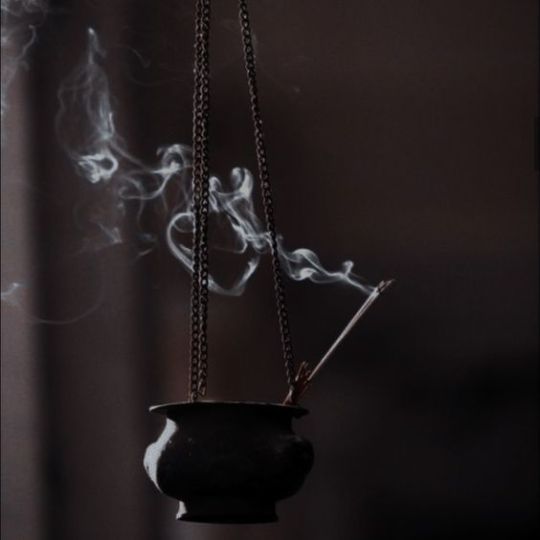


𝐌𝐁𝐓𝐈 𝐏𝐞𝐫𝐬𝐨𝐧𝐚𝐥𝐢𝐭𝐢𝐞𝐬 𝐄𝐱𝐩𝐥𝐚𝐢𝐧𝐞𝐝
Like I've done with the Hogwarts Houses, Moral Alignment, Tarot Cards and Zodiac (Sun, Moon, Rising); I am now creating a post for MBTI personalities! 16 all together, I've included some tests so if you don't know already, you can now!
Test One (from 16 Personalities, sort of the 'official' test, well the official free test. I think the real one you have to pay.)
Test Two (free don't worry)
Test Three (from truity)
There are sixteen different options that are split into four groups:
Analysts
Intuitive (N) and Thinking (T) personality types, known for their rationality, impartiality, and intellectual excellence.
Diplomats
Intuitive (N) and Feeling (F) personality types, known for their empathy, diplomatic skills, and passionate idealism.
Sentinels
Observant (S) and Judging (J) personality types, known for their practicality and focus on order, security, and stability.
Explorers
Observant (S) and Prospecting (P) personality types, known for their spontaneity, ingenuity, and flexibility.

Analysist: INTJ
𝑻𝒉𝒆 𝑴𝒂𝒔𝒕𝒆𝒓𝒎𝒊𝒏𝒅/𝑨𝒓𝒄𝒉𝒊𝒕𝒆𝒄𝒕
The acronym INTJ stands for introverted, intuitive, thinking, judging. ESFP is the opposite of the INTJ personality type. They're also known as: The Scientist, the Strategist.
𝐏𝐞𝐫𝐬𝐨𝐧𝐚𝐥𝐢𝐭𝐲:
One of the rarest personality types and one of the most capable
Rational and quick-witted
Not known for being warm and fuzzy. They tend to prioritize rationality and success over politeness and pleasantries
Architects question everything
Prefers to make their own discoveries
𝐓𝐫𝐚𝐢𝐭𝐬:
Independent
Introverted
Confident
Analytical
Driven
Ambitious
𝐂𝐡𝐚𝐫𝐚𝐜𝐭𝐞𝐫𝐬 𝐰𝐢𝐭𝐡 𝐭𝐡𝐢𝐬 𝐌𝐁𝐓𝐈:
Petyr Baelish
James Moriarty
Gandalf
Wednesday Addams
Walter White
Doctor Strange
Tywin Lannister
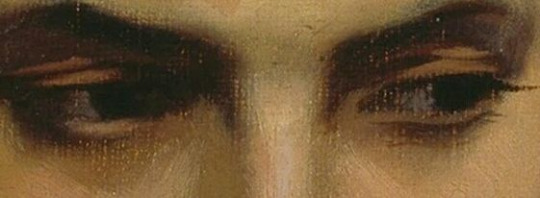
Analysist: INTP
𝑻𝒉𝒆 𝑳𝒐𝒈𝒊𝒄𝒊𝒂𝒏/𝑷𝒓𝒐𝒅𝒊𝒈𝒚
The INTP acronym stands for introverted, intuitive, thinking, perceiving. The opposite of an INTP is either an ESFJ or an ISFP. Also known as 'The Thinker.'
𝐏𝐞𝐫𝐬𝐨𝐧𝐚𝐥𝐢𝐭𝐲:
Can’t help but puzzle over the mysteries of the universe
Logicians aren’t afraid to stand out from the crowd
Often lose themselves in thought
They put a great deal of consideration into everything they do
Seem to live in a never ending daydream
𝐓𝐫𝐚𝐢𝐭𝐬:
Analytical
Imaginative
Curious
Radical thinking
Indepedent
Problem solvers
𝐂𝐡𝐚𝐫𝐚𝐜𝐭𝐞𝐫𝐬 𝐰𝐢𝐭𝐡 𝐭𝐡𝐢𝐬 𝐌𝐁𝐓𝐈:
Sherlock Holmes
Alice from Alice in Wonderland
Lord Varys
Bruce Banner
Arthur Weasley

Analysist: ENTJ
𝑻𝒉𝒆 𝑪𝒐𝒎𝒎𝒂𝒏𝒅𝒆𝒓
It stands for extraverted, intuitive, thinking, judging. ISFP is the opposite personality type of ENTJ. Sometimes referred to as the 'CEO'.
𝐏𝐞𝐫𝐬𝐨𝐧𝐚𝐥𝐢𝐭𝐲:
Ability to set long-range goals and implement them in an organized manner
They love a good challenge, whether it's big or small
Tend to avoid displays of any type of emotion, so they may be perceived as cold.
They firmly believe that given enough time and resources, they can achieve any goal.
At the negotiating table, be it in a corporate environment or buying a car, Commanders are dominant, relentless, and unforgiving.
𝐓𝐫𝐚𝐢𝐭𝐬:
Natural born leader
Charismatic
Direct
Organised
Self-assured
Stubborn
Dominant
𝐂𝐡𝐚𝐫𝐚𝐜𝐭𝐞𝐫𝐬 𝐰𝐢𝐭𝐡 𝐭𝐡𝐢𝐬 𝐌𝐁𝐓𝐈:
Thomas Shelby
Tony Soprano
Cersei Lannister
Beth Dutton
Milady de Winter
Raymond Reddington
Lyanna Mormont

Analysist: ENTP
𝑻𝒉𝒆 𝑫𝒆𝒃𝒂𝒕𝒆𝒓
It stands for extroverted, intuitive, thinking and perceiving. ISFJs and ENTPs are two Myers-Briggs personality types that share the same cognitive functions, but in reverse order. Also known as ' the Innovator,' 'the Visionary'.
𝐏𝐞𝐫𝐬𝐨𝐧𝐚𝐥𝐢𝐭𝐲:
It would be a mistake, though, to think of Debaters as disagreeable or mean-spirited. Instead, people with this personality type are knowledgeable and curious, with a playful sense of humor
No belief is too sacred to be questioned, no idea is too fundamental to be scrutinized, and no rule is too important to be broken
As Debaters see it, most people are too ready to do as they’re told and blindly conform to social norms
They tend to be bold and creative, deconstructing and rebuilding ideas with great mental agility. They pursue their goals vigorously despite any resistance they might encounter.
𝐓𝐫𝐚𝐢𝐭𝐬:
Quick-witted
Audacious
Rebellious
Outspoken
Puts self first
Charming
Unpredictable
𝐂𝐡𝐚𝐫𝐚𝐜𝐭𝐞𝐫𝐬 𝐰𝐢𝐭𝐡 𝐭𝐡𝐢𝐬 𝐌𝐁𝐓𝐈:
Captain Jack Sparrow
Tyrion Lannister
Willy Wonka
The Joker
Irene Adler
Fleabag
Alfie Solomons

Diplomat: INFJ
𝑻𝒉𝒆 𝑨𝒅𝒗𝒐𝒄𝒂𝒕𝒆/𝑴𝒚𝒔𝒕𝒊𝒄
Is someone with the introverted, intuitive, feeling, and judging personality traits. The opposite to INFJ is the INFP, who will appear less organized and less controlled than the INFJ to others.
𝐏𝐞𝐫𝐬𝐨𝐧𝐚𝐥𝐢𝐭𝐲:
They tend to approach life with deep thoughtfulness and imagination.
Their inner vision, personal values, and a quiet, principled version of humanism guide them in all things.
People with this personality type care about integrity, and they’re rarely satisfied until they’ve done what they know to be right.
Advocates tend to carry around a sense – whether conscious or not – of being different from most people.
𝐓𝐫𝐚𝐢𝐭𝐬:
Insightful
Idealistic
Principled
Wise
Moral
Compassionate
Understanding
Passionate
𝐂𝐡𝐚𝐫𝐚𝐜𝐭𝐞𝐫𝐬 𝐰𝐢𝐭𝐡 𝐭𝐡𝐢𝐬 𝐌𝐁𝐓𝐈:
Remus Lupin
Elsa
Obi-Wan Kenobi
Jane Eyre
Elizabeth Bennet
Loki
Galadriel
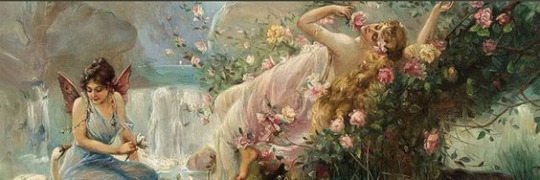
Diplomat: INFP
𝑻𝒉𝒆 𝑴𝒆𝒅𝒊𝒂𝒕𝒐𝒓/𝑫𝒓𝒆𝒂𝒎𝒆𝒓
Is someone who possesses the introverted, intuitive, feeling, and prospecting personality traits. ESTJ is the opposite personality type of INFP. Also known as 'the Idealist,' 'the Healer.'
𝐏𝐞𝐫𝐬𝐨𝐧𝐚𝐥𝐢𝐭𝐲:
These rare personality types tend to be quiet, open-minded, and imaginative, and they apply a caring and creative approach to everything they do.
Although they may seem quiet or unassuming, INFPs have vibrant, passionate inner lives.
Happily lose themselves in daydreams
Known for their sensitivity; they can have profound emotional responses to music, art, nature, and the people around them.
Long for deep, soulful relationships
Mediators have a talent for self-expression. They may reveal their innermost thoughts and secrets through metaphors and fictional characters.
𝐓𝐫𝐚𝐢𝐭𝐬:
Introspective
Intuitive
Empathetic
Flexible
Idealistic
Curious
Creative
Strong Personal Values
𝐂𝐡𝐚𝐫𝐚𝐜𝐭𝐞𝐫𝐬 𝐰𝐢𝐭𝐡 𝐭𝐡𝐢𝐬 𝐌𝐁𝐓𝐈:
Lucy Pevensie
Frodo Baggins
Tina Belcher
Newt Scammander
Wanda Maximoff
Luna Lovegood
Edward Scissorhands

Diplomat: ENFJ
𝑻𝒉𝒆 𝑷𝒓𝒐𝒕𝒂𝒈𝒐𝒏𝒊𝒔𝒕/𝑴𝒆��𝒕𝒐𝒓
ENFJ is extraverted, intuitive, feeling, and judging personality traits. ISTP is the opposite of the ENFJ personality type. Also known as, 'the Giver,' 'the Teacher.'
𝐏𝐞𝐫𝐬𝐨𝐧𝐚𝐥𝐢𝐭𝐲:
They're born leaders, with passion and charisma which makes them great politicians, coaches, and teachers.
These warm, forthright types love helping others, and they tend to have strong ideas and values.
They back their perspective with the creative energy to achieve their goals.
Feel called to serve a greater purpose in life
When something strikes them as unjust or wrong, they speak up
These personality types have the ability to pick up on people’s underlying motivations and beliefs
ENFJ’s secret weapon is their purity of intent
They're motivated by a sincere wish to do the right thing
𝐓𝐫𝐚𝐢𝐭𝐬:
Very extraverted
Great people skills
Warm
Affectionate
Supportive
Great at encouraging others
Thoughtful
Gentle
Kind
𝐂𝐡𝐚𝐫𝐚𝐜𝐭𝐞𝐫𝐬 𝐰𝐢𝐭𝐡 𝐭𝐡𝐢𝐬 𝐌𝐁𝐓𝐈:
Margaery Tyrell
Queenie Goldstein
Professor X
Mufasa
Diana Prince / Wonder Woman
Peeta Mellark
Elle Woods
Moana

Diplomat: ENFP
𝑻𝒉𝒆 𝑪𝒂𝒎𝒑𝒂𝒊𝒈𝒏𝒆𝒓
ENFP stands for extraverted, intuitive, feeling, and prospecting personality traits. ISTJ is the opposite personality type of ENFP. ENFPs are also called the Campaigners or the Encouragers mainly because of their desire to inspire and encourage other people. Also known as, 'the Champion,' 'the Visionary.'
𝐏𝐞𝐫𝐬𝐨𝐧𝐚𝐥𝐢𝐭𝐲:
These people tend to embrace big ideas and actions that reflect their sense of hope and goodwill toward others.
Their vibrant energy can flow in many directions.
Are true free spirits – outgoing, openhearted, and open-minded.
They can’t help but ponder the deeper meaning and significance of life – even when they should be paying attention to something else.
These people radiate a positive energy that draws in other people
Few things matter more to these personality types than having genuine, heartfelt conversations with the people they cherish
𝐓𝐫𝐚𝐢𝐭𝐬:
Free-spirited
Optimistic
Idealistic
Open-minded
Curious
Authentic
Inspiring
Intuitive
Imaginative
𝐂𝐡𝐚𝐫𝐚𝐜𝐭𝐞𝐫𝐬 𝐰𝐢𝐭𝐡 𝐭𝐡𝐢𝐬 𝐌𝐁𝐓𝐈:
Ariel
Anne of Green Gables
John Keating
Wizard Howl
Jo March
Michael Scott
Peter Parker/Spiderman
Phil Dunphy

Sentinel: ISTJ
𝑻𝒉𝒆 𝑳𝒐𝒈𝒊𝒔𝒕𝒊𝒄𝒊𝒂𝒏/��𝒆𝒕𝒆𝒄𝒕𝒊𝒗𝒆
ISTJ stands for introverted, observant, thinking, and judging personality traits. ENFP is the opposite personality type of ISTJ. Also known as 'Duty-Fulfillers'.
𝐏𝐞𝐫𝐬𝐨𝐧𝐚𝐥𝐢𝐭𝐲:
These people tend to be reserved yet willful, with a rational outlook on life.
They compose their actions carefully and carry them out with methodical purpose.
ISTJs pride themselves on their integrity
Aren’t known for expressing their emotions readily
They strive to meet their obligations no matter what
ISTJs might unfairly misjudge people who can’t match their rigorous self-control – suspecting that someone is being lazy or dishonest when that person might actually be coping with other challenges.
𝐓𝐫𝐚𝐢𝐭𝐬:
Decisive
Focused
Efficient
Reserved yet willful
Loyal
Blunt
Factual
Logical
Meticulous
𝐂𝐡𝐚𝐫𝐚𝐜𝐭𝐞𝐫𝐬 𝐰𝐢𝐭𝐡 𝐭𝐡𝐢𝐬 𝐌𝐁𝐓𝐈:
Hermione Granger
Thorin Oakinshield
Nedd Stark
Rick Grimes
Brienne of Tarth
Jim Hopper
Ron Swanson

Sentinel: ISFJ
𝑻𝒉𝒆 𝑫𝒆𝒇𝒆𝒏𝒅𝒆𝒓
ISFJ stands for introverted, observant, feeling, and judging personality traits. The ENTP personality type is the opposite ISFJs. Also known as 'the Protector,' 'the Nurturer.'
𝐏𝐞𝐫𝐬𝐨𝐧𝐚𝐥𝐢𝐭𝐲:
These people tend to be warm and unassuming in their own steady way.
They’re efficient and responsible, giving careful attention to practical details in their daily lives.
In their unassuming, understated way, Defenders help make the world go round.
They invest a great deal of energy into maintaining strong connections with their loved ones
Known for dropping everything and lending a hand whenever a friend or family member is going through a hard time.
Defenders’ sense of loyalty doesn’t stop with their nearest and dearest – it often extends to their communities, their employers, and even family traditions.
For ISFJs, “good enough” is rarely good enough. People with this personality type can be meticulous to the point of perfectionism.
𝐓𝐫𝐚𝐢𝐭𝐬:
Warm-hearted
Responsible
Sensitive
Reliable
Caring
Will do anything for those they care about
Generous
Defenders tend to underplay their accomplishments but they eventually become resentful toward the people who just don’t seem to appreciate them.
Excellent analytical abilities and an eye for detail
𝐂𝐡𝐚𝐫𝐚𝐜𝐭𝐞𝐫𝐬 𝐰𝐢𝐭𝐡 𝐭𝐡𝐢𝐬 𝐌𝐁𝐓𝐈:
Steve Rogers/ Captain America
Jennifer Honey (Miss Honey from Matilda)
Beth March
Charlie Buckets
Samwise Gamgee
Dr Watson
Will Turner

Sentinel: ESTJ
𝑻𝒉𝒆 𝑬𝒙𝒆𝒄𝒖𝒕𝒊𝒗𝒆/𝑪𝒂𝒑𝒕𝒂𝒊𝒏
ESTJ stands for extraverted, observant, thinking, and judging personality traits. INFP is the opposite personality type of ESTJ. Also known as 'the Supervisor,' 'the Composer.'
𝐏𝐞𝐫𝐬𝐨𝐧𝐚𝐥𝐢𝐭𝐲:
They possess great fortitude, emphatically following their own sensible judgment.
They often serve as a stabilizing force among others, able to offer solid direction amid adversity.
ESTJs feel most comfortable when there are established procedures in place
Taking pride in bringing people together
The main challenge for Executives is to recognize that not everyone follows the same path
Executives are classic images of the model citizen: they help their neighbors, uphold the law, and try to make sure that everyone participates in the communities and organizations they hold so dear.
𝐓𝐫𝐚𝐢𝐭𝐬:
Productive
Task-Orientated
Pragmatic
Enjoy order and structure in life
Focuses on facts and details rather than ideas and concepts
Confident
Natural leaders and have a strong work ethic
𝐂𝐡𝐚𝐫𝐚𝐜𝐭𝐞𝐫𝐬 𝐰𝐢𝐭𝐡 𝐭𝐡𝐢𝐬 𝐌𝐁𝐓𝐈:
Mary Poppins
Peter Pevensie
Borormir
Monica Gellar
Hector Barboss
Claire Dunphy
Miranda Bailey
Mycroft Holmes

Sentinel: ESFJ
𝑻𝒉𝒆 𝑪𝒐𝒏𝒔𝒖𝒍
ESFJ stands for extraverted, observant, feeling, and judging personality traits. ISTP is the opposite personality type to ESFJs because they often struggle to be practical. Also known as, 'the Caregiver,' 'the Host.'
𝐏𝐞𝐫𝐬𝐨𝐧𝐚𝐥𝐢𝐭𝐲:
They are attentive and people-focused, and they enjoy taking part in their social community.
Their achievements are guided by decisive values, and they willingly offer guidance to others.
Energized by time spent with others
Consuls do believe in the power of hospitality and good manners, and they tend to feel a sense of duty to those around them
Consuls have a talent for making the people in their lives feel supported, cared for, and secure.
They believe that there is a clear right thing to do in nearly every situation
ESFJs have a clear moral compass
𝐓𝐫𝐚𝐢𝐭𝐬:
Attentive
People-focused
Generous
Reliable
Tender-hearted
Organised
Focused
Strong sense of duty
𝐂𝐡𝐚𝐫𝐚𝐜𝐭𝐞𝐫𝐬 𝐰𝐢𝐭𝐡 𝐭𝐡𝐢𝐬 𝐌𝐁𝐓𝐈:
Anna Smith
Molly Weasley
Bilbo Baggins
Effie Trinket
Sansa Stark
Cher Horowitz
Nala
Leslie Knope

Explorer: ISTP
𝑻𝒉𝒆 𝑽𝒊𝒓𝒕𝒖𝒐𝒔𝒐
ISTP stands for introverted, observant, thinking, and prospecting personality traits. ENFJ is the opposite of the ISTP personality type. Also known as, 'the Vigilante,' 'the Crafter,' 'the Analyser,' 'the Artisan.'
𝐏𝐞𝐫𝐬𝐨𝐧𝐚𝐥𝐢𝐭𝐲:
They tend to have an individualistic mindset, pursuing goals without needing much external connection.
They engage in life with inquisitiveness and personal skill, varying their approach as needed.
Virtuosos love to explore with their hands and their eyes, touching and examining the world around them with cool rationalism and spirited curiosity.
Energized by time spent alone
Virtuosos are likely to go too far, accepting likewise retaliation, good or bad, as fair play.
Act too soon
They’ll be the first to tell an insensitive joke, get overly involved in someone else’s project, roughhouse and play around, or suddenly change their plans because something more interesting came up.
𝐓𝐫𝐚𝐢𝐭𝐬:
Individualistic mindset
Logical
Loves action and new experiences
Logical but adaptable
Enigmatic
A lot of impulsive energy
Have a “do unto others” attitude
Self-sufficient
Tough
Independent
𝐂𝐡𝐚𝐫𝐚𝐜𝐭𝐞𝐫𝐬 𝐰𝐢𝐭𝐡 𝐭𝐡𝐢𝐬 𝐌𝐁𝐓𝐈:
Arya Stark
Jason Bourne
Jessica Jones
Jace Herondale
Indiana Jones
Rosa Diaz
Rue Bennett
John Wick
Wolverine

Explorer: ISFP
𝑻𝒉𝒆 𝑨𝒅𝒗𝒆𝒏𝒕𝒖𝒓𝒆𝒓
ISFP means introverted, observant, feeling, and prospecting personality traits. ISFP is the opposite of ENTJ: the commander, who is upfront outgoing and demanding. ISFP is quiet and unassuming. Also known as, 'the Artist, 'the Composer.'
𝐏𝐞𝐫𝐬𝐨𝐧𝐚𝐥𝐢𝐭𝐲:
They tend to have open minds, approaching life, new experiences, and people with grounded warmth.
Their ability to stay in the moment helps them uncover exciting potentials.
Adventurers tend to see themselves as “just doing their own thing,” so they may not even realize how remarkable they really are.
Quiet and reserved, people with this personality type are keen observers; they enjoy the moment and what’s happening around them.
Embrace a flexible, adaptable approach to life.
Remarkably tolerant and open-minded.
𝐓𝐫𝐚𝐢𝐭𝐬:
Gentle
Compassionate
Tend to live in the here and now
Love to be active
And love interacting with others
Carefree
Playful
Spontaneous
𝐂𝐡𝐚𝐫𝐚𝐜𝐭𝐞𝐫𝐬 𝐰𝐢𝐭𝐡 𝐭𝐡𝐢𝐬 𝐌𝐁𝐓𝐈:
Claire Fraser
Eowyn
Bella Swan
Jon Snow
Cinna
Zuko
Cedric Diggory

Explorer: ESFP
𝑻𝒉𝒆 𝑬𝒏𝒕𝒆𝒓𝒕𝒂𝒊𝒏𝒆𝒓
ESFP stands for extraverted, observant, feeling, and prospecting personality traits. INTJ is the opposite personality type of ESFP. People with this personality type tend to be outgoing, friendly, and impulsive, acquiring the most enjoyment from being in the presence of others. Also known as, 'the Performer.'
𝐏𝐞𝐫𝐬𝐨𝐧𝐚𝐥𝐢𝐭𝐲:
These people love vibrant experiences, engaging in life eagerly and taking pleasure in discovering the unknown.
They can be very social, often encouraging others into shared activities.
These people love vibrant experiences
ESFPs get caught up in the excitement of the moment, and want everyone else to feel that way, too.
No other personality type is as generous with their time and energy as Entertainers when it comes to encouraging others, and no other personality type does it with such irresistible style.
Many famous people with the Entertainer personality type are indeed actors
There’s no greater joy for them than just having fun with a good group of friends.
Have the strongest aesthetic sense of any personality type; an eye for fashion.
𝐓𝐫𝐚𝐢𝐭𝐬:
Spontaneous
Humorous
Comedic-relief
Thoughtful
Well-liked
Resourceful
Outgoing
Friendly
Love the spotlight
𝐂𝐡𝐚𝐫𝐚𝐜𝐭𝐞𝐫𝐬 𝐰𝐢𝐭𝐡 𝐭𝐡𝐢𝐬 𝐌𝐁𝐓𝐈:
Steve Harrington
Jesper Fahey
Arthur Shelby
Rose Tyler
Jesse Pinkman
Andy Bernard

Explorer: ESTP
𝑻𝒉𝒆 𝑬𝒏𝒕𝒓𝒆𝒑𝒓𝒆𝒏𝒆𝒖𝒓/𝑫𝒂𝒓𝒆𝒅𝒆𝒗𝒊𝒍
ESTP stands for extraverted, observant, thinking, and prospecting personality traits. INFJ is the opposite personality type of ESTP. Also known as, 'the Doer,' 'the Action-Seeker,' 'the Persuader.'
𝐏𝐞𝐫𝐬𝐨𝐧𝐚𝐥𝐢𝐭𝐲:
They tend to be energetic and action-oriented, deftly navigating whatever is in front of them.
They love uncovering life’s opportunities, whether socializing with others or in more personal pursuits.
They love using common sense to find smarter ways of doing things.
While they are dedicated to whatever they're working on, they don't like to be micromanaged or told what to do by others.
They thrive by being the center of attention.
Always have an impact on their immediate surroundings
If an audience member is asked to come on stage, Entrepreneurs volunteer
They have a special ability to react quickly in an emergency or crisis situation.
𝐓𝐫𝐚𝐢𝐭𝐬:
Adventurous
Thrill-seeking
Energetic
Outgoing
Charismatic
Persuasive
Live in a world of action
𝐂𝐡𝐚𝐫𝐚𝐜𝐭𝐞𝐫𝐬 𝐰𝐢𝐭𝐡 𝐭𝐡𝐢𝐬 𝐌𝐁𝐓𝐈:
Rebecca Sharp
Jaime Lannister
Aquaman
Gimli
Sirius Black
Han Solo
Jennifer Check
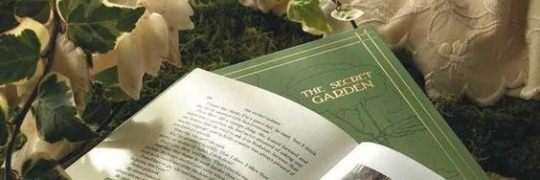
𝑻𝒊𝒑𝒔 𝒐𝒏 𝒉𝒐𝒘 𝒕𝒉𝒆 𝒍𝒆𝒕𝒕𝒆𝒓𝒔 𝒘𝒐𝒓𝒌:
Extraversion (E) – Introversion (I)
Extraverts (also often spelled extroverts) are "outward-turning" and tend to be action-oriented, enjoy more frequent social interaction, and feel energized after spending time with other people. Introverts are "inward-turning" and tend to be thought-oriented, enjoy deep and meaningful social interactions, and feel recharged after spending time alone.
Sensing (S) – Intuition (N)
People who prefer sensing tend to pay a great deal of attention to reality, particularly to what they can learn from their own senses. They tend to focus on facts and details and enjoy getting hands-on experience. Those who prefer intuition pay more attention to things like patterns and impressions. They enjoy thinking about possibilities, imagining the future, and abstract theories.
Thinking (T) – Feeling (F)
This scale focuses on how people make decisions based on the information that they gathered from their sensing or intuition functions. People who prefer thinking place a greater emphasis on facts and objective data.
Judging (J) – Perceiving (P)
The final scale involves how people tend to deal with the outside world. Those who lean toward judging prefer structure and firm decisions. People who lean toward perceiving are more open, flexible, and adaptable. These two tendencies interact with the other scales.
#witchthewriter#mbti#personality#personalities#mbti personality types#mbti stuff#mbti types#mbti personalities#personality types#entj#enfp#intp#esfj#intj#infp#witch the writer's lessons#witch's lessons#personalities explained#infj#enfj#istp#entp#istj#estj#esfp#estp#outgoing#introverted#ambiverted#quiet
2K notes
·
View notes
Text
Pick a Pile Reading | Messages From Your Future Spouse 💍🪐
Business Carrd 🍶🧺
Paid Services 🍇⭐
Tip Jar 🍾🎱
*Disclaimer: This is a collective reading - take what resonates and leave the rest. If this resonates with you, please show support by reposting (with credit), tipping, or booking with me! :)
*Exchanges with other intuitives/readers are available via dm's

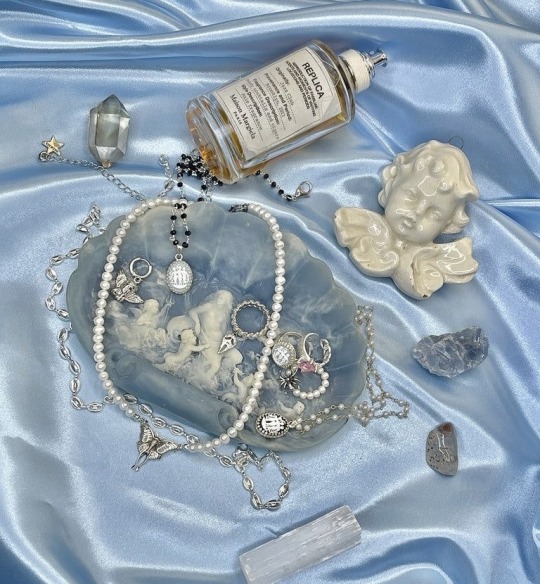
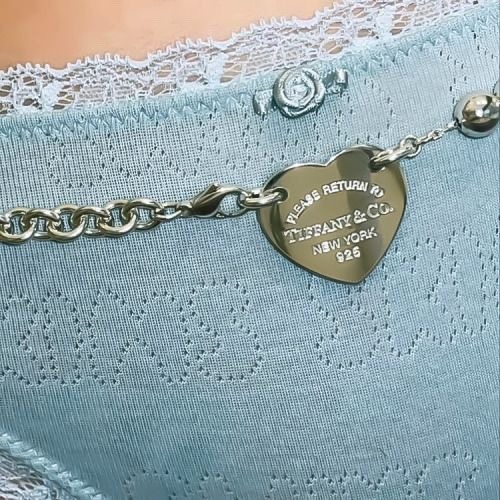

──────
PILE 1 COLLECTIVE
• I love the sound of your laughter.
• You’ve turned me into a more carefree person.
• Let’s spend the day baking/cooking then heading right back to bed to cuddle!
• I feel like we could never have enough quality time together.
• You’re my favorite person in the world.
• I’m addicted to your scent.
• We should start a family (🐾/👶).
• You’re my lock screen.
• I tell all my friends about you. If you checked my notifications, all you’d see is a group chat roasting me for how obsessed I am with you.
• There is no place I’d rather be than here with you in my arms.
• I like to watch you sleep. You just seem so peaceful and still that it’s intensely captivating. I hope you don’t mind 😵💫.
~ miscellaneous: earth sign placements. homebodies. 2 introverts or an introvert & an extrovert. hard-working, masculine qualities in your spouse. wholesome domestic moments.
PILE 2 COLLECTIVE
• I want to drown in the sea of your existence.
• Dedicating poetry and art to you — my favorite muse.
• There is nothing in the world that I wouldn’t give to have more time with you.
• I’m afraid of loss/dying, but entering old age with you would make my existence complete.
• Please don’t leave me.
• Can I wake you up early if I’m craving your attention? It’s hard for me to contain my excitement when you look this beautiful/attractive.
• Let’s watch the sunset together and stay up late talking for hours.
• Every detail of your existence does not go unnoticed by me.
• We were meant to love each other in this life/I know that we are past life lovers who have found one another again.
• Come on, baby. Don’t be shy with me.
~ miscellaneous: water sign placements (especially scorpio or for their moon sign). 2 night owls or a night owl & a morning person. hozier songs. romantic moments caught on camera/posted online. artist x muse trope.
PILE 3 COLLECTIVE
• You light me on fire with desire.
• I love teasing you more than anything else in the world.
• You’re my best friend and lover, all wrapped into one.
• My heart feels warm and glows from the inside whenever you’re around.
• I can’t lose you. If I do, I’ll go crazy.
• Let’s go for a drive, listen to music, eat food, and forget about our worries.
• I want to be the first person you call when you’re in trouble.
• I will never judge you.
• We will travel everywhere and make the world our own.
• I want to surprise you with grand gestures (especially via gifts or shared experiences).
~ miscellaneous: fire sign placements. ready or not — bridgit mendler. sneaky smirks that make you smile uncontrollably. spontaneous memories or communication. fluffy hair & tan skin features for some.
PILE 4 COLLECTIVE
• Pulling out all my best jokes just for you.
• Give me a nickname and I’ll give you one back.
• How can I possibly deny your charm?!
• Your style is impeccable. Every time we’re in a shop together, I just want to watch you pose in front of the mirror.
• I’ll make you homemade snacks and share my family’s recipes with you!
• Spoiling you with acts of service.
• We don’t even have to speak to understand one another. Mere eye contact is enough.
• You bring out my (good) crazy side 🤪.
• I love how we can always bounce off each other’s energies so well.
• I wanna give you expensive jewelry or items with my initials on it.
~ miscellaneous: air sign placements. a quirky sense of humor. distinct eyebrows. friends to lovers trope (Monica & Chandler came to mind). latin/hispanic backgrounds for some.
#pick a pile reading#astrology#law of assumption#zodiac signs#astro notes#astro observations#birth chart#horoscope#natal chart#sun signs#astrology blog#astroblr#tarotblr#witchblr#psychic#intuitive#tarot reading#pac reading#pick a pile#collective reading#manifestation#affirmations#subliminals#spells#synastry#love reading#future spouse reading#soulmates
486 notes
·
View notes
Text
Rolan's Personality Type
So, when responding to @sleketon-or-slekky's post on what Rolan's MBTI would be, I wondered if I should try writing an "essay" on it. Mind you, I have never written a character essay before and I'm not entirely sure how it works, but there is a first time for everything and I thought the topic was interesting enough to share my thoughts on as best as I can. However, I won't make any extreme deep dives as I am not a professional, so I'll keep it pretty basic but still explain my understanding of it. Do take everything I say with a grain of salt.
Before I start, I want to point out that personality typology such as Myers Briggs type indicator, enneagram, astrology and everything else that falls under the term are highly unreliable to use on real people, as every individual is too complex to perfectly fit into one box or another. Personality types are mostly regarded as pseudoscience in psychology, so in my opinion, they shouldn't be applied to anything other than entertainment and fiction.
(I've found most of my information from sources like 16personalities and Truity)
Anyway, let's begin.
MBTI, or Myers Briggs type indicator: The Prodigy
I think a lot of people on the internet have heard of MBTI before, which is a pretty straightforward tool to find your personality among 16 distinct types based on four letters that make up your functions. Introversion or Extroversion, Intuition or Sensing, Thinking or Feeling, and Judging or Perceiving. You're either one or the other of all four of these categories and they explain how you operate as a person. Of course, no one person is strictly a feeler and never thinks logically, and nobody is entirely extroverted and prefers to spend all their time around people. The lines blur somewhere, but the letters are based on how you function the majority of the time.
A lot of us know what Introversion and Extroversion are, but most people don't exactly know what they mean. It's not just about whether or not you like being around people, but when and where you get your energy. Some people prefer to be on their own to recharge, but that doesn't necessarily mean that they dislike people or struggle with being social. Others get their energy from being among friends and family, but that doesn't mean that they refuse to be alone or are unable to recharge in solitude.
As it is with NPCs, we haven't seen enough of Rolan to tell for certain whether he's an extrovert or introvert, but you can get a general idea from your interactions with him. He seems to strive for renown, dreaming of his name being known "far and wide". He wants all eyes on him, and though he could be feigning confidence, I also think it's tightly linked to who he is, as he genuinely seems to value being someone others look up to. He thrives in environments where he gets to show off his skills and he responds well to praise and applause. Those who aspire to be in the spotlight are often rather extroverted people, whether or not it is a coping mechanism. So I'll give him an E (don't worry, babe. I'm not grading you).
Then there is Intuition and Sensing. It means you either utilise concrete thinking as you analyse the world around you (Sensing) or abstract thinking as you regard the "what if"s of a situation rather than the tangible (Intuition).
Rolan is a very concrete and literal person. He's highly focused on the things that are in front of him, and the things that are the most important: The safety of his siblings and his apprenticeship waiting for him in Baldur's gate. He is laser-focused on both, and he's practical enough to act on achieving them by all means. He doesn't stop and let his imagination do the work for him, he's hellbent on continuing forward and learning all that he can. So much so that he didn't think to question if Lorroakan's treatment of him was entirely necessary, as he thought it was the prize he had to pay "to become a true wizard". He saw his abuse as a test and it seemed reasonable to him. He is also very good at taking past experiences into account as a way of learning from them, which is brilliant for his character development. So, I give him an S (because he's S-teir).
Thinking and Feeling are often discussed when it comes to MBTI. If feelers are nothing but illogical crybabies, and thinkers are unfeeling machines. Both are entirely untrue, of course. Some lean more into their feelings than others, while some focus more on the facts, but that doesn't mean that the former can't practice logic and rational thinking and the latter are unempathetic and hold no sentimental values. We're still human (humanoid in Rolan's case).
Rolan comes off as unfeeling the first time you meet him. He wants to leave the grove and the refugees behind to continue onward to Baldur's gate, refusing to stay and help. I've read plenty of great character analysis posts on why that is his stance, and they've all painted a good picture of him as a person and what he has potentially been through as a child when you take his mannerisms into account, which are rather atypical compared to the other tieflings. But I won't get into that, because now we're talking about our feelings! I can say straight off the bat that Rolan is a highly rational person. He does things because they make sense and not necessarily because they feel right. It makes sense to leave the grove because one: They have places to be and he "cannot be late", and two: These people won't make it otherwise. If you and your companions hadn't arrived, he would've been right. Why stay and defend a bunch of strangers that will ultimately die, when you have the chance to bring your family to safety? He doesn't hold anything back either, as he says what he thinks, even if it makes him appear in a less savoury light. But it can also be said that his emotions do fuel the things he says, especially when he lashes out at you in Act 2 after losing Cal and Lia. But like I said, he's a person. So, I give him a strong T (for our Testy grump).
Lastly, we have Judging and Perceiving. Either you're a very organised and schedule-oriented person. You're less open-ended, focus more on efficiency than flexibility and want to have things determined and prepared (Judging). Or, you're a far more spontaneous person who doesn't want to restrict your options. You want to have the opportunity to explore your interests and alternatives freely without being tied to timetables and intricate plans (Perceiving).
I think I've pretty much established that Rolan is single-mindedly focused on getting to Baldur's gate and starting his apprenticeship. Little else can infringe on that plan and whenever he has no choice but to postpone it, he gets noticeably stressed and upset. Speaking to him at the tiefling party, an occasion which is a distraction from the current course of action, he reveals that it wasn't his decision to come, but Cal and Lia's. He's decisive, stubborn as an ass and wants things to go according to his expectations, and when they don't, it tests his patience and puts him ill at ease. With his every plan, he makes it abundantly clear that he will follow through with them no matter what. No matter if it means conquering the shadow curse to save his siblings. No matter if it means being frequently verbally and physically abused to achieve his dream. No matter if he has to rip his newly-acquired tower apart to find a way to help you fight the Absolute. He is stalwart and orderly, which is admirable, but his aversion to any form of help has come with its share of consequences. Thus I'll give our beloved tiefling a J (I don't have a clever joke for that one).
So, that would mean that he falls on Extroversion, Sensing, Thinking and Judging. Or to put it simply: ESTJ.
An ESTJ, also known as the "executive" or "supervisor" (as referred to by 16personalities and Truity respectively), is a hard-working, traditional and dedicated individual who appreciates orderly and methodical approaches to their everyday life. They're assertive and efficient and want structure and control of their physical and social environment, while also being highly resilient and determined. They're grounded and see things for what they are and how they can be improved, often taking inspiration from past problems and solutions, and they're mostly at home in a setting where they're in the lead, therefore shining in roles as managers and directors of both themselves and others. Although they can be unapologetically straightforward and honest, they're incredibly loyal and reliable, staying true to their word and never breaking their promises.
An ESTJ, however, is rigid and unyielding. They can be uptight and have strong convictions in their beliefs of what is right and wrong, making them rather judgemental of those who do not fit their opinion of "right". Due to their extroversion and strong traditionalism, they can put a bit too much importance on status and have incredibly high standards for themselves.
Now, I am aware that it would be better to go into cognitive functions and assess which one of those he aligns with, but that would make this essay twice as long and a lot more convoluted than what I've already made it, but I'm pretty confident in my conclusion either way. I didn't intend to make this a deep dive and I think ESTJ fits him almost to a tee.
I don't know how exactly to conclude this. As I said, I've never done a character essay before and I've always had a hard time trusting my own judgement and opinions on things, but sometimes you have to take a leap of faith.
Anyway, I had fun with this! But if there is anything I missed that is worth mentioning, or if you have any additional thoughts on this, I'd love to hear them! Every perspective of our beloved grumpy tiefling wizard is a welcome one and I am always open to discussion. I wrote this for the Rolan nation, after all!
Thank you for reading! <3
Also, before you go, have a little Rolan dressed as the ESTJ avatar from 16p:

#bg3#baldur's gate 3#baldurs gate 3#bg3 rolan#rolan#holy rolan empire#rolan bg3#rolan empire#rolan nation#rolan fanart#character essay#personality psychology#mbti#mbti personalities#mbti types#mbti estj
62 notes
·
View notes
Text
MBTI types for The Cup Family Headcanons
I put them on the MBTI test based on their personalities
Just the Cups & Mugs and their parents
Here's the result ♥️♣️♦️♠️
♥️ Utena Teacup – ESTP ("The Entrepreneur")
Extroverted, Sensing, Thinking, Perceiving
Utena is adventurous, spontaneous, and action-oriented, making her a clear fit for the ESTP type. She lives in the moment, thrives in dynamic environments, and isn't afraid to take risks. Her impulsivity and practicality align with an ESTP’s tendency to jump into challenges headfirst and figure things out as they go.
Key Traits: Energetic, bold, resourceful, thrives on excitement, can be impatient or reckless.

♣️ Walter Watterson – INFJ ("The Advocate")
Introverted, Intuitive, Feeling, Judging
Walter’s calm, collected demeanor combined with his deep sense of thoughtfulness and observation makes him an INFJ. He cares deeply about those around him and works diligently to ensure their well-being, as seen in his work as a potioneer and . His reserved but kind personality fits the INFJ archetype of a quiet, strategic visionary.
Key Traits: Thoughtful, empathetic, visionary, methodical, can be overly cautious or perfectionistic.

♦️ Cuphead – ENFP ("The Campaigner")
Extroverted, Intuitive, Feeling, Perceiving
Cuphead’s boundless energy, creativity, and love for adventure align perfectly with the ENFP type. He’s confident, spontaneous, and full of big ideas, but sometimes his lack of focus or planning can lead to trouble. ENFPs are known for their enthusiasm and charm, which matches Cuphead’s exuberant and mischievous personality.
Key Traits: Optimistic, playful, spontaneous, thrives on social interaction, can be reckless or distractible.

♠️ Mugman – ISFJ ("The Defender")
Introverted, Sensing, Feeling, Judging
Mugman’s cautious, polite, and rule-abiding nature makes him a classic ISFJ. He’s dependable, practical, and focused on helping others, often acting as the responsible sibling who keeps things together when Cuphead’s antics go too far. His sensitivity and thoughtfulness reflect the ISFJ’s protective and nurturing tendencies.
Key Traits: Responsible, supportive, detail-oriented, prefers routine, can be overly self-critical or hesitant.

Summary:
Utena: ESTP – Bold, spontaneous, and thrives on action.
Walter: INFJ – Thoughtful, visionary, and empathetic.
Cuphead: ENFP – Creative, energetic, and adventurous.
Mugman: ISFJ – Dependable, cautious, and nurturing.
Their MBTI types reflect a balance of extroversion and introversion, with Utena and Cuphead bringing energy and spontaneity, while Walter and Mugman provide stability and thoughtfulness. This dynamic creates both harmony and humorous clashes!
#MBTI#AU log#headcanon#the legacy of inkwell isle#Calix Animi Family Stuff#Cuphead#Mugman#utena teacup#walter watterson#cuphead au#cuphead parents#keep an open mind#I like how the results goes though
72 notes
·
View notes
Text
Till is definitely an INFP (1/5)
Happy Birthday Till! - you chronically misunderstood soul. You live up to your personality type to a T. I recently learned Vivinos is an INFP. I figured someone on the team must be to write Till so precisely without any overlap of other personality types. I watched detailed videos on all sixteen personality types and no other ones matched.
I didn't know anything about MBTI when I first started researching his personality type. Once I learned about it, I was shocked people would think he's anything else. I'm aware there's skepticism in the fandom about his designation, so I want to first consider the traits commonly associated with INFPs:
gentle
empathetic
compassionate
sincere
humble
sensitive
timid
innocent
optimistic
idealistic
daydreamer
childlike
curious
stubborn
creative
passionate
independent
individualistic
non-conformist
peace-revering
This may make it seem like he's something else. After all, how can he be so aggressive and violent if his personality type is focused on healing and pacifism? But MBTI isn't about a list of traits but rather how you think. If you understand how his mind works, it becomes a lot easier to recognize why he acts the way he does.
What is MBTI?
MBTI is NOT extrovert vs introvert, intuition vs sensing, thinking vs feeling, and perceiving vs judging. It's about which of these you prioritize, your strengths and weaknesses, and what defines who you are. There are eight cognitive functions. Everyone has all eight but the order matters.
MBTI is a four letter code to determine this order:

Your second letter is your perceiving function (how you perceive the world). For Till, that's Intuition (N).
Your third letter is your judging function (how you make judgements). For Till, that's Feeling (F).

The fourth letter indicates which is your extroverted function. For Till, that's his perceiving function (P) so he uses Extroverted Intuition.

That automatically means his judging function is introverted which is Introverted Feeling.

The first letter indicates which is your primary. For Till, this in introversion (I).
So his first function is Introverted Feeling and his second function is Extroverted Intuition. We'll abbreviate these as Fi and Ne.

Your third function is the direct opposite of your second function. For Till, this is Ne -> Si: Introverted Sensing.
Your fourth function is the direct opposite of your first function. For Till this is Fi -> Te: Extroverted Thinking.
This means Till's third function is Introverted Sensing and his fourth function is Extroverted Thinking. We'll abbreviate these as Si and Te.
(Screenshots from Alexis Kingsley on YouTube)
Thus, Till's cognitive functions, in order, are:
Fi (Introverted Feeling)
Ne (Extroverted Intuition)
Si (Introverted Sensing)
Te (Extroverted Thinking)
If you're curious, for the fifth, sixth, seventh, and eighth functions, the judging and perceiving functions are in the same order with opposite extroversion and introversion. For Till, that's Fe, Ni, Se, and Ti. However, you only consciously value your first four functions. You recognize and respect these traits in yourself and in other people.
What does this mean?
You'll notice every function is either defined as extroverted or introverted. These have different definitions than the common usage.
Extroversion means turning outward. It is needed for output and impact. It is focused on the external and interested in the objective.
Introversion means turning inward. It is needed for depth and clarity. It is focused on the internal and interested in the subjective.
When someone becomes too introverted, they lose impact. When someone becomes too extroverted, they become scattered.
-> What is Introverted Feeling (Fi)? (2/5)
#happy birthday till!#alien stage#alnst#alien stage till#alnst till#alien stage mizi#alien stage ivan#alnst mizi#alnst ivan#ivantill#mizitill#tillmizi#alien stage analysis#alnst analysis#if you saw this in the tag already I decided to split this into two#and then after I did that changed my mind again and decided to split it into THREE#bc I decided it'd be easier to read that way#and also easier to reblog#and then I had to repost AGAIN so it'd all be in order#and now it's five as you can see orz#tw: long post
28 notes
·
View notes
Text
✨ Who Is Jungkook’s Future Spouse? — A Tarot Energy Reading
✦ by Lumi, your fave tarot it-girl 💅✨
Tarot Deck Used: A traditional Rider-Waite-Smith
✦ TAROT SPREAD
The Sun: Jungkook’s future spouse has a radiant aura. They are someone who lights up a room with genuine presence and laughs with their whole soul and believes in transparency, warmth, and optimism.This person doesn’t play games. They’re emotionally honest, childlike in joy, and probably have a glowy vibe that makes people feel safe and seen.
Five of Cups: Beneath the sunny exterior, this person has known pain. Abandonment or betrayal, a significant emotional loss or disappointment and deep reflections on what could’ve been. They’re someone who feels deeply, but doesn’t always show it. They’ve had to learn how to choose gratitude over grief, and still sometimes fall into the shadows of their past.
Temperance: This card is the heart of their energy. They are emotionally mature, highly spiritual or intuitive. They may have been through emotional extremes, but now they walk a centered path. This is someone who doesn’t rush love, life, or decisions. They believe in divine timing.
Ace of Pentacles: This person wants to build something real. They’re not into flings, chaos, or superficiality. They crave: a stable home, a slow-growing, rooted love, security, not just financially, but emotionally and spiritually. They will offer Jungkook a fresh, grounded start.
The Hanged Man: This is where their spiritual depth comes through again. They’re likely someone who has experienced deep inner transformation and has been forced to let go and surrender at some point not because they’re passive, but because they’re wise
MBTI-Like Typing: Likely INFJ or ISFP
She’s a deep feeler and an intuitive soul. Based on the cards: Introverted (Hanged Man, Hermit-like energy), intuitive (Temperance, Moon-type depth), feeling-led (Queen of Cups style warmth), judging or perceiving depending on her current phase in life.So she most likely aligns with INFJ (The Advocate) or ISFP (The Healer/Artist). She lives through emotion, processes life inwardly, and chooses intentional love over impulse.
Relationship with Jungkook
Jungkook is fire-meets-water. He’s emotional, passionate, impulsive, and sensitive. She will ground him. She won’t try to control him, but will help him find his center. When he doubts himself, she’ll show him his reflection through her eyes like a mirror, and he’ll fall in love with himself all over again.
(guys, I love her already. 💜)
✦ do you want a personal reading like this?
🌸 I offer:
Celebrity Tarot Reads (K-Pop, BTS, Actors) SP Manifestation Guidance Future Love + Shadow Work Spreads Moon-Coded Letter from Your Twin Flame Channeled Audio Readings + PDF Summaries ✧ First reading? Ask for a free pull!
—
📩 DMs Open: @xuexing-lumi Tumblr inbox
🖤 closing words from Lumi:
We ride or die, even through the mess. 💅 — Lumi, the Moon’s Bride 🌕💋
—
(ignore):
#tarot#tarot cards#tarotblr#tarot reading#tarotcommunity#bts#jimin#bts jimin#jungkook#park jimin#jk#just girly things#im just a girl#Seven#standing next to you#celebrity gossip#celebs#celebrity#celeb rp
32 notes
·
View notes
Text
MBTIs of BBC's Merlin & Arthur Pendragon
Arthur Pendragon (ISTJ)

Introverted (I): Now I know many people see him as an extrovert. I argue he plays extroverted out of necessity. Although Arthur is often in the spotlight due to his royal position, he tends to process emotions and decisions internally. He’s reserved about personal feelings, often keeping a stoic exterior, particularly in moments of vulnerability. His introversion explains why in season 4 finale (the show only has 5 seasons), he told Merlin that Merlin was still his only friend, despite the fact that all the Knights of the Round had already been established! He clearly differentiates knights who would willingly give their lives from real friends. Arthur is so private that he doesn't even tell his wife things. In season 5, she casually said, "Arthur never tells me anything." Arthur only really lets Merlin in. (Because he loves Merlin, duh. lol)
Sensing (S): Arthur is pragmatic and focused on the present. He has a strong sense of duty and tradition, often valuing tangible results and sticking to established systems, like the chivalric code and the duties of being a king.
Thinking (T): He makes decisions based on logic and duty rather than emotions. Arthur strives to do what is right for Camelot and tends to focus on rationality when dealing with political and military matters, even if it means setting aside personal attachments.
Judging (J): Arthur values structure and order. He is disciplined, prefers routines, and is committed to fulfilling his responsibilities as a king. He can be strict, both with himself and others, expecting everyone to uphold the same level of duty.
Merlin (ENFP)

Extraverted (E): I have heard some parts of fandom say Merlin is introverted.... But Merlin has to be the friendliest, most outgoing and open character on the show! Merlin effortlessly connects with others. He’s warm, often initiating interactions with various people across all social classes, and enjoys forming deep bonds with those around him. Basically, the complete opposite of Arthur. Arthur's top knights, Lancelot and Gwaine, became knights for Merlin, because of their friendship with him! Merlin at his best is a happy, bubbly dude!
Intuitive (N): Merlin looks beyond the surface and sees potential and possibilities. He is often focused on his vision for the future, specifically the destiny he believes Arthur must fulfill, and tends to think about the broader implications of events.
Feeling (F): Merlin makes decisions based on his emotions and values. He is compassionate and deeply cares about the people he loves, even risking his life to protect them. His empathy drives many of his actions, as he is guided by his heart rather than just logic.
Perceiving (P): Merlin is adaptable and flexible. He thrives in chaotic situations, often relying on his quick thinking to solve problems on the fly. Unlike Arthur, Merlin isn't tied to structure and routine, preferring to go with the flow and adjust his plans as circumstances change.
Even being complete opposites (they don't have a single common letter in their MBTI), Arthur and Merlin's personalities complement each other in a way that makes their relationship dynamic, powerful, and balanced. Despite their differences, these contrasts are what strengthen their bond, making them effective as partners and allowing them to grow as individuals.
How their MBTIs shaped their love story:
1. Arthur (ISTJ) – Duty vs. Love
Arthur’s ISTJ personality makes him deeply rooted in duty and tradition, which often conflicts with his personal feelings. As a king-in-waiting, he’s bound by the rules and expectations of Camelot. This sense of responsibility prevents him from openly expressing his affection for Merlin, a commoner and servant.
Suppressed feelings: Arthur’s introversion and thinking function push him to hide his emotions, especially his care and affection for Merlin. His loyalty to his role as prince often conflicts with his deeper, unspoken feelings for Merlin. Arthur’s rational side forces him to focus on the kingdom, keeping his emotions hidden beneath his duty to the crown.
Traditional values: As an ISTJ, Arthur’s sense of tradition keeps him from crossing the boundaries of class and status. His love for Merlin, if fully acknowledged, would defy these societal norms, and his reluctance to embrace that love fully reflects his fear of breaking those structures.
2. Merlin (ENFP) – Love as a Driving Force
Merlin’s ENFP personality is more openly emotional and driven by personal values. His feeling and perceiving traits allow him to express affection, even though it’s subtle and often masked in humor or banter. Merlin constantly shows his love and devotion to Arthur by risking his life to protect him and ensuring Arthur’s destiny as king.
Boundless loyalty: Merlin’s deep emotional attachment to Arthur is clear, as he constantly sacrifices his own desires, hiding his magic and risking his safety to ensure Arthur’s survival. His ENFP idealism drives his belief in Arthur as the Once and Future King, and this belief is tied deeply to Merlin’s personal love for him. The idealism of an ENFP is evident in how Merlin sees the bigger picture of Arthur’s destiny but is also fueled by his personal love and emotional bond.
Unconditional care: While Arthur struggles to show emotions, Merlin’s extraverted nature makes it easier for him to express affection through acts of service. He remains unwavering in his commitment to Arthur, which highlights the ENFP’s ability to love deeply and unconditionally, even when the other person may not fully reciprocate outwardly.
3. Their Banter – The ENFP vs. ISTJ Communication Style
The teasing and banter between Arthur and Merlin highlight their different communication styles. Merlin’s ENFP warmth and humor frequently bring out Arthur’s softer, more human side. Arthur’s ISTJ personality makes him reluctant to openly express affection, so their teasing and sarcastic exchanges become a way to communicate affection indirectly. The playful insults act as a cover for their deeper bond.
Arthur’s respect for Merlin grows over time, despite his reserved demeanor, and Merlin’s ability to challenge him emotionally helps Arthur soften. Their banter is more than comedic relief; it shows how they communicate their care for one another in a way that feels safe and acceptable.
4. Trust and Emotional Vulnerability
Arthur (ISTJ) is slow to trust others with his vulnerabilities, given his reliance on structure and duty. But over the course of the series, he opens up to Merlin more than anyone else, showing a side of himself that he hides from everyone, including his wife and family members (like Morgana and Uther). Merlin’s warmth and loyalty gradually create a space where Arthur can be emotionally vulnerable.
Merlin (ENFP), in contrast, is more expressive and emotionally open from the beginning. His challenge lies in getting Arthur to see past his role as a servant and accept him as an equal in friendship—and potentially in love. Merlin consistently puts Arthur first, and Arthur, in return, eventually trusts Merlin above all others, including knights and advisors.
5. Protectiveness and Sacrifice
Arthur’s ISTJ sense of duty makes him protective of those he cares about, even if he doesn’t vocalize it. His actions speak louder than words, as he consistently risks his life for Merlin. This protectiveness is a manifestation of his deep, unspoken love for Merlin. However, Arthur often couches these actions in the context of duty—saying he would do the same for anyone in Camelot—when, in reality, Merlin holds a special place in his heart. He was about to abort a mission, causing hundreds of deaths, all for Merlin. Also, in one scene, as they were fleeing from a monster, Merlin fell and Arthur went back for him, a mere "idiot" servant. In that same scene, a knight fell (knights are the bread & butter of Camelot), but Arthur just kept running with Merlin....
Merlin (ENFP), with his focus on emotions and the bigger picture, sacrifices everything for Arthur. His feeling-based decisions make his love for Arthur a central motivation for everything he does, even if it means hiding his magic and true self. This constant self-sacrifice for Arthur’s sake is a key expression of Merlin’s love, a classic ENFP trait—giving up his own needs for those of someone he cares deeply about.
6. Destiny and Fate – The ENFP Belief in Idealism
Merlin’s ENFP idealism sees Arthur as not just a king but the Once and Future King, destined to unite Albion. This belief in Arthur's potential drives Merlin’s unwavering devotion, and his love for Arthur is inseparable from his belief in their shared destiny. Merlin’s visions of a better future are rooted in his love for Arthur, and it’s his idealism that keeps him fighting for that future.
Arthur (ISTJ), being more grounded, is less concerned with abstract concepts like destiny and fate at first, but over time, Merlin’s unwavering belief in him helps Arthur grow into the king Merlin always knew he could be. Arthur begins to rely on Merlin’s intuition and instincts more and more, eventually embracing the destiny Merlin foresaw for him. Though Arthur may not openly express it, he comes to understand that Merlin’s faith in him is born out of deep love.
7. The Final Goodbye – An Emotional Climax
The emotional 'I love you': In the final episode, Arthur’s ISTJ stoicism breaks as he finally acknowledges the depth of his bond with Merlin. When Merlin reveals his magic, Arthur is hurt and betrayed at first (typical ISTJ reaction to broken trust), but eventually, he softens, realizing that Merlin has been protecting him all along. In his final moments, Arthur shows his vulnerability, thanking Merlin for everything—a rare moment of emotional openness for him. He simultaneously mouths 'I love you.'
Throughout the series, Arthur’s ISTJ sense of responsibility made it difficult for him to prioritize his personal feelings over his role as king. But as he faces death, duty and love become inseparable. His final act of trying to kiss Merlin shows that, even though he had been bound by the expectations of the crown, in his last moments, his love for Merlin overrides those constraints. His inability to express affection easily is part of his ISTJ personality, but in his final moments, he sheds that restraint, finally allowing himself to express what he’s likely felt for a long time. For Arthur to mouth 'I love you", even silently, is monumental. It’s a complete surrender of the emotional guard he’s maintained, signifying not just love but trust, vulnerability, and a breaking of the social norms and responsibilities that have constrained him. The fact that he chooses to say it at the very end shows that he always cared deeply for Merlin, but only now, when there’s nothing left to hold him back, can he express it.
Arthur, having always struggled to communicate his feelings, finally mouths the words "I love you" when it’s too late to make a difference. This is reflective of his ISTJ personality—he needed to be pushed to the very brink of death before he could allow himself to be emotionally vulnerable and express his love. The timing makes this moment all the more tragic because Arthur had to die before truly opening up.

The almost-kiss: Arthur’s instinct to pull Merlin in for a kiss reflects the ISTJ desire to do things physically, practically, and decisively, even in the most emotional moments. It also shows how Arthur, who had been in control of so much of his life, wanted to take control of this final expression of love. Yet, his inability to complete the kiss mirrors his inability to fully express his love for Merlin throughout their time together—blocked by the weight of his responsibilities as king.

For Arthur, to attempt to kiss Merlin in his final moments is a gesture of complete vulnerability. An ISTJ like Arthur rarely breaks emotional barriers, but in this moment, he lets go of everything—the crown, his duties, his stoic exterior—and reaches for the person who has always been there for him. It’s the ultimate sacrifice of his own emotional walls.
Arthur’s attempt to kiss Merlin shows that he is finally willing to defy the traditions and expectations that have held him back for so long. As a prince and then a king, he was expected to follow societal norms, but in his final moments, he’s free of those chains and can express his love for Merlin without fear of judgment or duty holding him back. The kiss is the ultimate acknowledgment of the love he had hidden behind his royal duties.
Throughout the series, Arthur has hidden his true feelings for Merlin behind duty, status, and responsibility. His inability to express affection easily is part of his ISTJ personality, but in his final moments, he sheds that restraint, finally allowing himself to express what he’s likely felt for a long time. As he faces death, duty and love become inseparable. His final act of trying to kiss Merlin shows that, even though he had been bound by the expectations of the crown, in his last moments, his love for Merlin overrides those constraints. Arthur, true to his ISTJ nature, often preferred action over verbal declarations of emotion. By attempting to physically pull Merlin in for a kiss, Arthur shows that his love for Merlin transcends words—it's something he feels deeply and wants to express through connection, even when he doesn't have the words to say it outright.
Merlin's internal turmoil: As an ENFP, Merlin had always worn his heart on his sleeve, even when his love for Arthur was expressed through loyalty, service, and protection. The fact that Arthur finally mouths "I love you" just as he's dying would shatter Merlin’s heart, as it represents the culmination of everything Merlin had been hoping for but never dared to fully expect. Merlin, the dreamer and idealist, had believed in Arthur’s greatness, and now, in this moment, Arthur’s love is revealed, only for it to be taken away immediately in the "bury (or kill) your gays" trope.
For Merlin, the attempted kiss is heartbreaking because it represents the closeness and intimacy they could have had if circumstances were different, as Merlin said, "I always thought if things had been different, we'd've been good friends." ENFPs, with their emotional expressiveness, seek connection and intimacy in their relationships, and Arthur’s attempt to kiss him in his final moments is a bittersweet acknowledgment of the love that Merlin had always known was there, but could never be fully realized. The fact that they were so close to expressing that love makes the loss all the more devastating for Merlin.
A Tragic Love Story Cut Short
The final scene where Arthur mouths "I love you" and attempts to kiss Merlin before dying is the ultimate expression of their hidden, unspoken love. Arthur’s ISTJ personality, which had kept his emotions guarded for so long, finally breaks, allowing him to express his true feelings. Meanwhile, Merlin’s ENFP nature, always driven by emotion and idealism, is left devastated by the cruel timing of this revelation.
Their MBTI types add layers to this tragic love story. Arthur’s love, expressed at the very end, shows how hard it was for him to balance duty and emotion, while Merlin’s eternal grief reflects the ENFP’s idealistic belief in love, crushed by the harsh reality that they were too late. Their love was always there, simmering beneath the surface, but in the end, fate allowed only a fleeting moment of acknowledgment before tearing them apart.
After Credits/The Once & Future King:
1. Merlin’s ENFP Hope and Eternal Longing
Driven by Idealism: Merlin’s ENFP personality is defined by hope and idealism, traits that keep him believing in Arthur’s eventual return. Even though Arthur died, Merlin’s unwavering belief in the prophecy—that Arthur will rise again—fuels his determination to keep waiting. For Merlin, his love for Arthur and his faith in the prophecy are intertwined, so he continues to hold onto the belief that their story isn’t over.
Endless Loyalty: ENFPs are known for their loyalty to people they care deeply about, and Merlin’s waiting for over 1,500 years is the ultimate expression of that loyalty. He never moves on, because his heart and soul remain connected to Arthur, and he believes that their bond transcends death and time itself.
Living in Grief and Hope: As a feeler, Merlin experiences the full emotional weight of Arthur’s loss, but his belief in Arthur’s return sustains him. The fact that he has to wait so long makes his grief even more intense, but the hope that Arthur will rise again keeps him going, even after centuries of loneliness. His ENFP nature ensures that his love for Arthur never fades, and he continues to hold onto the possibility of their reunion.
2. Arthur’s ISTJ Rest and Duty to Return
Waiting for the Right Moment: Arthur’s ISTJ personality means that, even in death, he is waiting until the precise moment when he is needed most. His sense of duty to Camelot and to Merlin persists, even after death, as he waits for the time when his kingdom—or Merlin—truly requires him. The prophecy reflects Arthur’s ISTJ nature, as he will return to fulfill his duty, not a moment too soon or too late.
Faith in Merlin: Even in the afterlife, Arthur’s deep trust in Merlin remains. Although he is resting, there is an unspoken understanding that when he rises, Merlin will be by his side, just as he always has been. Arthur’s loyalty and sense of responsibility mean that he trusts Merlin to carry on until the moment of his return.
The Final Act of Duty and Love: Arthur’s rise will be his final act of duty as king and as a friend and lover. His ISTJ sense of purpose and structure drives his eventual return, knowing that Merlin and the kingdom will need him again. When he does come back, it will be out of love for Merlin and a deep sense of responsibility to his people.
3. A Love That Survives Time
Merlin’s Endless Vigil: For over 1,500 years, Merlin has waited, watching the world change, but his love for Arthur remains constant. His ENFP personality clings to the belief that the prophecy will come true, and when Arthur finally returns, it will be the culmination of centuries of waiting. Merlin’s idealism, rooted in his deep emotional connection to Arthur, sustains him through time. He doesn’t seek out other connections because, in his heart, Arthur is the one he’s waiting for.
Arthur’s Timeless Love: Even though Arthur is resting, his love for Merlin isn’t diminished by time. When he returns, his ISTJ loyalty will kick in, and he will fulfill his promise—coming back to be with Merlin and to save the kingdom when it’s needed most. His return is not just a matter of destiny, but also a testament to the bond he shares with Merlin, one that surpasses life, death, and time itself.
4. The Ultimate Reunion
The Prophecy Fulfilled: When Merlin and Arthur finally reunite after over a millennium, the moment will be one of overwhelming emotional release for both. Merlin, with his ENFP emotions, will have spent centuries holding onto hope, and Arthur’s return will be the answer to his deepest longing. The reunion will allow Merlin to finally let go of the grief he’s carried for centuries, knowing that Arthur is back by his side, just as he always believed he would be.
Arthur’s ISTJ Return to Duty: Arthur’s return will be a moment of intense duty and purpose, but also of love. His ISTJ nature ensures that he will rise again when Merlin (the last remaining piece of Albion) needs him most. Their reunion will be both the fulfillment of a prophecy and the completion of their love story.
5. Symbolism of Eternal Love
Waiting as a Form of Love: Merlin’s long wait for Arthur shows that love isn’t confined to one lifetime. His waiting is a manifestation of his deep, undying love, and it reflects the ENFP’s capacity for emotional endurance. Even though he’s spent centuries alone, his heart remains tethered to Arthur, and when Arthur finally returns, it will be a moment of profound emotional catharsis.
Arthur’s Duty Transcends Time: Arthur’s ISTJ sense of duty extends beyond the grave, showing that his bond with Merlin is eternal. His return will not just be about fulfilling his destiny as king, but also about being reunited with Merlin, the person who has always been by his side. This reunion will be the ultimate proof that their love and duty to each other cannot be broken by death or time.
Conclusion: A Love That Defies Time
The prophecy of Arthur’s return turns their story into an eternal love saga. Merlin, driven by his ENFP idealism and emotional depth, waits for centuries, believing in the prophecy and holding onto the love he has for Arthur. Arthur, waiting in Avalon, as the prophecy foretold, remains loyal to his duty and his love for Merlin, waiting for the moment when he is needed most.
When they are finally reunited, it will be a moment of ultimate emotional release, where centuries of love, hope, and loyalty finally come together. Their story is one of timeless love, with their bond surviving beyond life and death, waiting to be fulfilled in a future where they can be together once again.
#merthur#merlin#arthur pendragon#bbc merlin#merlin bbc#enfp#istj#MBTI#even tho i personally dont believe in MBTI anymore! its still fun to do!#merthur almost kiss#merthur i love you#merthur is canon#check my merthur is canon tagggg
76 notes
·
View notes
Note
could u tell us more about each mbti type in general ? ur post about the whc characters was so interesting <3
i'm glad you enjoyed my post about whc, and of course, i'd be more than happy to brief you about mbti. however, i hope you don't regret asking this question, because you might have unleashed a beast.
so, get ready for a quick mbti class! here's a little cheat sheet i made for your reference:
so basically, mbti operates on cognitive functions, which are just the mental processes we rely on to make decisions and understand the world. there are eight functions total, and each one is either:
introverted or extraverted (how you engage with your inner self versus how you engage with the external world)
judging or perceiving (deciding versus observing)
everyone has all eight functions, but in different orders. your mbti “type” (like INFP, ESTJ, etc.) is based on which four you use the most, and especially your top two, called the dominant and auxiliary functions. these two shape most of your personality.
if your dominant function is a perceiving function (N, S), then your auxiliary function would be a judging function (T, F). if one is extraverted, the other is introverted.
so if you're an ISTJ, for example, that doesn't mean you don't perceive at all. the S in ISTJ helps you perceive (through sensing), while the T helps you judge. J in your mbti just means that your judging function (T) makes the external part of your personality (so, Te), while your perceiving function (S) is who you are on the inside, (so Si).
now that we have that out of the way, let me brief you on all 16 mbti types, based on their dominant/auxiliary function pairings:
INFP (Fi-Ne)
to explain functions a bit: an INFP's dominant function is Fi (introverted feeling), which means their personal values and emotions are very inward, deep, and individual.
their auxiliary is Ne (extraverted intuition), so they interpret the world through patterns, ideas, and possibilities, very externally focused.
so INFPs tend to be thoughtful, emotionally independent, and idealistic. they care a lot about authenticity and inner peace, and they love exploring new ideas and meanings behind things.
ENFP (Ne-Fi)
ENFPs lead with extraverted intuition, constantly scanning for possibilities, ideas, connections. their secondary function, Fi, means they check those ideas against their personal values.
they’re outwardly energetic, spontaneous, and full of big-picture thinking, but they’re also quietly principled and sensitive under the surface.
the difference between ENFP and INFP isn't that one is an extrovert and the other is an introvert (though that might be the case, a lot of times). it just means that ENFP's intuition (Ne) is stronger than their feeling (Fi), while an INFP's Fi is stronger than their Ne.
INFJ (Ni-Fe)
introverted intuition (Ni) leads INFJs to focus inwardly on abstract insights, long-term patterns, and “gut” feelings. Fe, their secondary, is how they connect to others, read emotional environments and try to maintain harmony.
they often come across as calm, gentle, and emotionally intelligent externally (because their external function is feeling), yet internally they can be intense and future-focused, thanks to their introverted intuition.
ENFJ (Fe-Ni)
ENFJs lead with Fe, meaning they prioritize external harmony and the emotional needs of others. their Ni makes them insightful about people’s long-term paths and potential.
they are warm, empathetic leaders, often guiding others with a mix of emotional intelligence and quiet vision.
again the difference between ENFJ and INFJ is that ENFJs rely on their external function (Fe) more, while INFJs rely on their internal function (Ni) more.
INTP (Ti-Ne)
Ti (introverted thinking) leads INTPs to analyze things logically and independently. paired with Ne, they explore endless possibilities, ideas, and patterns.
they’re deeply curious, skeptical, and abstract in their thinking. they can get stuck in their heads, but that’s also where they thrive.
ENTP (Ne-Ti)
ENTPs are idea machines. their Ne drives them to chase possibilities and mentally experiment with “what-ifs.” their Ti evaluates those ideas with internal logic.
they’re witty, rebellious thinkers, drawn to novelty, debate, and intellectual play.
INTJ (Ni-Te)
Ni gives INTJs a single-minded focus on long-term visions, strategies, and future outcomes. their Te (extraverted thinking) helps them organize the external world efficiently to achieve those visions.
they’re goal-oriented, rational, and strategic; rarely loud, but always calculating the next move.
ENTJ (Te-Ni)
ENTJs lead with Te, structuring the world around them based on objective logic and efficiency. their Ni keeps them oriented toward long-term goals and intuitive predictions.
they’re decisive, commanding, and visionary; often seen as natural leaders who value competence above all.
ISFP (Fi-Se)
Fi makes ISFPs deeply value-driven and emotionally independent. Se means they perceive the world through immediate sensory experiences.
they’re artistic, grounded in the present, and often express emotion through action or creativity rather than words.
ESFP (Se-Fi)
ESFPs are vivacious and in-the-moment. their Se makes them attuned to the physical world, while Fi means they still stay true to their personal values.
they’re bold, warm, and emotionally reactive; often spontaneous with a hidden depth.
ISTP (Ti-Se)
ISTPs use Ti to assess things logically and independently, and Se to interact fluidly with their environment.
they’re adaptable, often quiet but sharp, with a love for mechanics, hands-on problem-solving, and autonomy.
ESTP (Se-Ti)
ESTPs lead with Se, reacting instantly and confidently to their surroundings. their Ti filters those perceptions with logical precision.
they’re bold, action-oriented, and love pushing boundaries, often charming and clever, with an appetite for risk.
ISFJ (Si-Fe)
Si (introverted sensing) makes ISFJs rely on past experiences and traditions, while Fe helps them care for others and maintain harmony.
they’re gentle, loyal, and highly observant of people’s needs; usually quiet, but emotionally strong and dependable.
ESFJ (Fe-Si)
ESFJs lead with Fe, actively maintaining social harmony and supporting others. Si makes them grounded in familiarity and routine.
they’re sociable, nurturing, and detail-oriented, often the “glue” that holds groups and communities together.
ISTJ (Si-Te)
Si leads ISTJs to be meticulous, detail-focused, and grounded in what they know works. Te organizes the world around them in a practical, no-nonsense way.
they’re responsible, reliable, and value order and duty above chaos or novelty.
ESTJ (Te-Si)
ESTJs are dominant Te users, they love structure, control, and results. paired with Si, they draw on past systems and rules to create stability.
they’re firm leaders, often blunt but dependable, and motivated by getting things done right.
•
so that's mbti types explained through cognitive functions in the simplest way possible. hope it helps!

#ask owl#suhosieun#mbti#mbti types#cognitive functions#mbti cognitive functions#mbti personality types#mbti personalities#infp#enfp#infj#enfj#intp#entp#isfj#esfj#istp#estp#istj#estj#intj#entj#isfp#esfp
22 notes
·
View notes
Text
💛✨ INTRO POST ✨💛

🫀 Hi everyone and welcome to my Tumblr blog ! I'm Reda and I'm 23 years old !🫀
- Pronouns She/Her - I'm a self-shipper, fully fictosexual/fictoromantic and NON-SHARING. - My MBTI is INFJ ( Advocate ) ! This personality type's traits are introverted, intuitive, feeling, and judging ! INFJs value deep, authentic relationships with others. It's also the rarest personality type in the MBTI board ! - My F/O is Trafalgar Law or Trafalgar D. Water Law by his full name, from the anime and manga One Piece !! He's my husband, my partner, the love of my life and I've been married to him for years now ! I fell for him when I was 14 years old, and I'm still head over heels over him after all this time ! It's been almost 10 years now that I met him and he brought me so much happiness and love, Law truly means everything to me ! ❤️🔥
- I don’t post NSFW stuff !

Here's some facts about me :
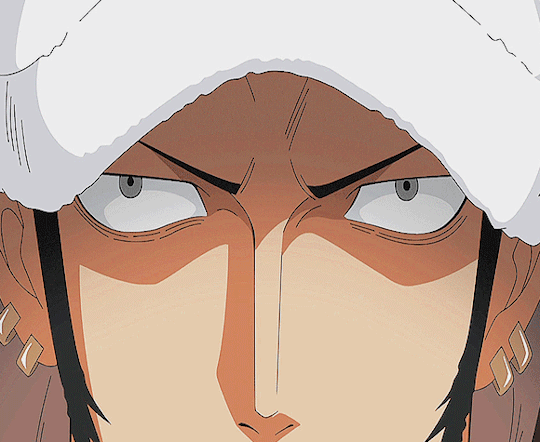
LawDa is me and Law's ship name ! It's a mix between our names.
Our colors are Red and Yellow ! Red being my color and Law's being yellow 💛❤️
Our ship name 'LawDa' sounds exactly like Oda, the author of One Piece !! It's a really fun fact and it makes it look like me and Law are truly canon <3
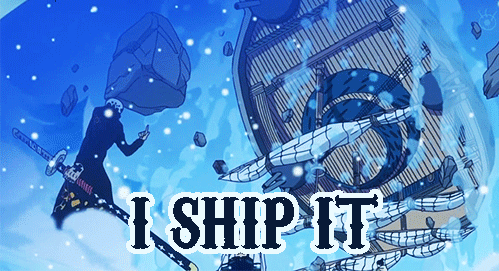
When I was a child, I was extremely interested about the medical field, I read books about the human body/anatomy, watched shows about doctors like Dr. House, played doctor games like Trauma Center, etc. And growing up, I got a degree in Social Health and I'm considering working in a hospital or medical office ! So Law being a doctor adds to my feelings for him, because I've always had a soft spot for doctors 🤍
I came up with a very cute nickname for Law ! I call him 'Lawpard', it's a mix between 'Law' and 'Leopard' because that's his spirit animal, and the black spots on his white fur hat and pants really look like a leopard's spotted fur ! 🐆
In Japanese, his nickname would be ‘ローパード’ Rōpādo ! It sounds really adorable and suits his tsundere persona !
The R in R-Room ( Re-Room ) stands for Reda ✨
I've got a Straw Page : https://lawda.straw.page/
Feel free to leave some doodles on it ! 🫶🏻
I've been on Tumblr for a long time now and I have mutuals here who happen to be huge One Piece lovers and deeply love their partners from that same anime ! They are fictos as well <3
DO NOT INTERACT : Dupes, Law shippers, pro-shippers, anti self-shippers, and non-sharers haters !
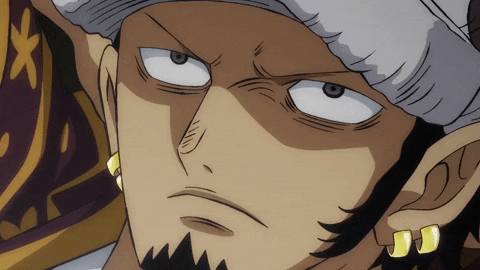
#one piece#romantic f/o#selfship#f/o community#trafalgar law#fictoromantic#reda#reda tag#lawda#my traffy#trafalgar lawxreda#intro post#introduction#blog
19 notes
·
View notes
Note
Could you do an mbti profile for Trip and T'pol from star trek enterprise? 🛸 🖖
Hi there, sweetie! I really hope you like this a lot!
Trip Tucker's MBTI Type, Big Three, Enneagram Type and Moral Alignment Type

MBTI Type: ESTP [The Entrepreneur]
ESTP types like being around large groups of people, whether they know them or not. They prefer being out in action to being at home by themselves.
They are very observant and detail-oriented people. They are practical and realistic, focusing on the here-and-now.
Entrepreneurs make decisions based in logic. They care more about following the truth than making other people happy.
They avoid schedules, preferring to make plans as they go. They are less aware of time and enjoy being adaptable.
Big Three: Cancer Sun, Gemini Moon & Sagittarius Rising
Cancer Sun: Ruled by the Moon, Cancers are emotionally mature, intuitive, sensitive, and artistic. They are guided by their tender, loving, and protective hearts.
Gemini Moon: Ruled by winged messenger, Mercury, Gemini Moons enjoy discussing their complex feelings with others in order to gain a mindful and clear emotional perspective.
Sagittarius Rising: Sagittarius risings are jovial, optimistic, and full of energy. They sparkle with confidence, and you can't help but sparkle back when you're around them.
Enneagram Type: 7w8 [The Opportunist]
Basic Fear: Seven with an eight wing fear being deprived. They want to pursue new opportunities and avoid being controlled by schedules.
Basic Desire: Their basic desire is to content and satisfied. They love experiencing the world by traveling and going to parties.
Opportunists defend themselves by justifying others’ negative actions and rationalizing away bad feelings.
Moral Alignment Type: Neutral Good [The Benevolent]
These characters seek to do good, but are flexible in how they achieve it, valuing both order and freedom.
T'Pol's MBTI Type, Big Three, Enneagram Type and Moral Alignment Type

MBTI Type: ISTJ [The Logistician]
Introverted ISTJ types process the world internally. They tend to feel drained after social events and need time alone to recharge.
Highly pragmatic, they tend to focus more on the details, rather than the bigger picture. They make decisions based on what they see and know right now.
Logisticians prioritize logical thinking and are more concerned with facts than emotion. They believe the truth is more important than people’s feelings.
They are very structured and organized, preferring to plan ahead and follow rules and processes. They are disciplined and have a strong work ethic.
Big Three: Virgo Sun, Capricorn Moon and Taurus Rising
Virgo Sun: Governed by communication planet Mercury, Virgos are the thinkers of the zodiac. Virgos process information with diligence and use facts to solve problems.
Capricorn Moon: The Capricorn Moon is reflective and contemplative, working to build a better foundation with those they care about.
Taurus Rising: Those with Taurus risings exude grace and sophistication, and handle business with a sweet disposition.
Enneagram Type: 6w5 [The Guardian]
Basic Fear: Sixes with five wings are afraid of losing their guidance and stability. This is often expressed through their skepticism of the world.
Basic Desire: They have a strong desire for security, which they tend to show by protecting themselves and others. They seek close and stable relationships.
Guardians tend to defend themselves by projecting their own feelings onto others, which can often enhance their distrust of the world.
Moral Alignment Type: Lawful Neutral [The Judge]
These characters are all about order and organization. They strictly follow laws, regardless of whatever it leads to good or evil outcomes.
#disneymbti#star trek enterprise#trip tucker#t'pol#mbti types#estp#istj#astrology#zodiac signs#cancer sun#gemini moon#sagittarius rising#virgo sun#capricorn moon#taurus rising#enneagram types#7w8#the opportunist#6w5#the guardian#moral alignment types#neutral good#the benevolent#lawful neutral#the judge#connor trinneer#jolene blalock
16 notes
·
View notes